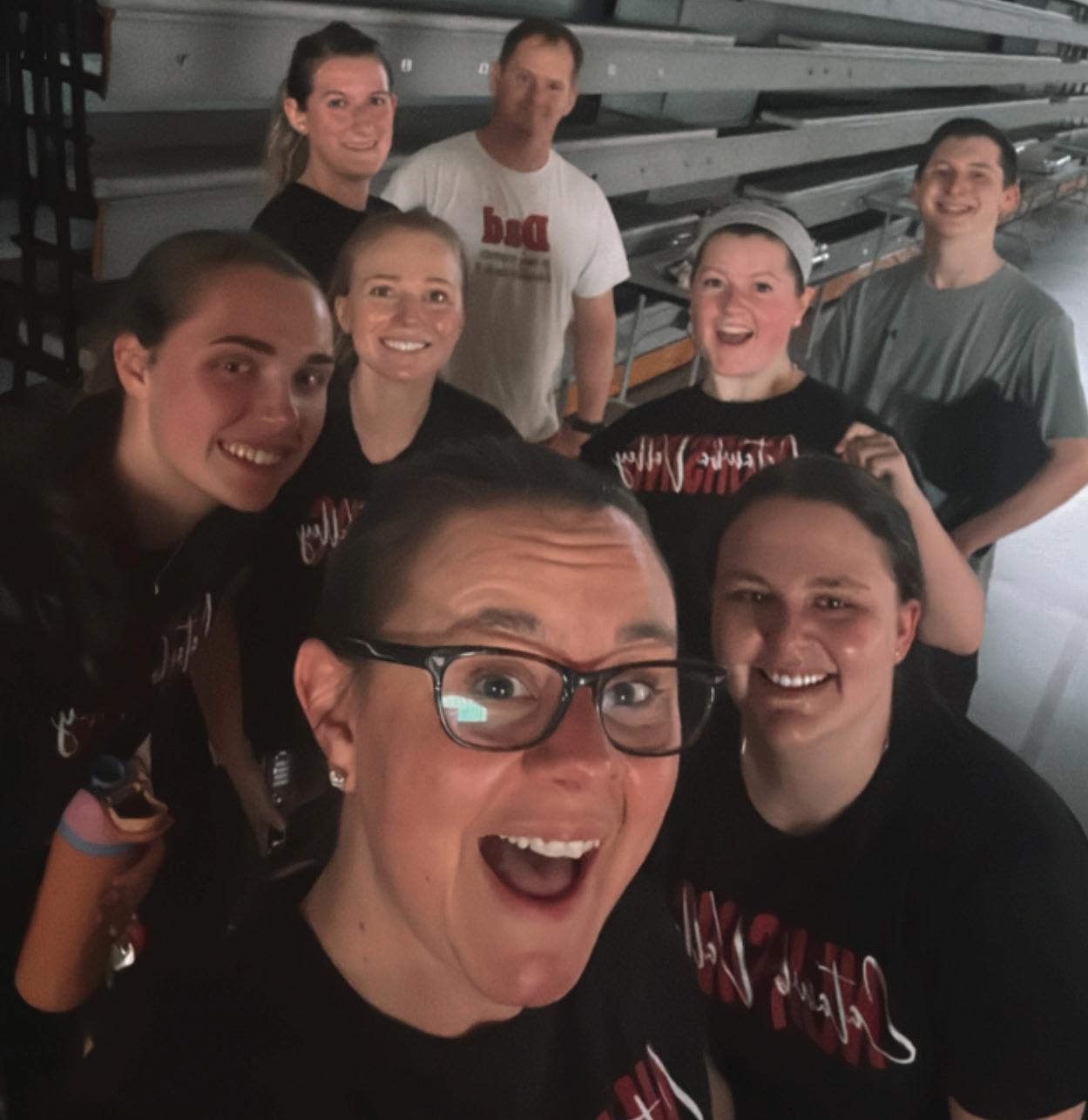
4 minute read
RUNNING FOR A REASON
If you had to decide between resting at home after class or pushing yourself to stay on campus, which would you choose?
Isn’t the answer simple? Not for a special group of nursing students. This second-year Nursing cohort proved their dedication to their field as they took on an after-class running challenge. Day by day, the students finished class, exchanged their uniforms for running shoes, and headed to the Tarlton Complex to run a mile or more—with the ultimate plan of running 100 miles within the 100 days before their Nursing pinning last Spring.
The idea for a running cohort came from classmate Lindsey Benfield. Lindsey, who has always been passionate about fitness, recognized that her classmates might enjoy some exercise after a long day of college seminars—and she knew that a running cohort would help keep everyone accountable. Lindsey and her classmates found the motivation to finish the semester strong while reaching their health and wellness goals alongside their academic achievements.
It was an ambitious challenge, especially for those who did not consider themselves to be experienced runners. But this tight-knit group kept themselves accountable, and even when it was tough, they encouraged each other to go farther and do more.
If students could not run with the cohort, they ran at home, their local gym, or in their neighborhoods.
When asked about the challenge and their experience, most students described the cohort as an outlet.
“It’s been great for me,” says Emily Fisher, a 2024 graduate of CVCC’s Nursing program and member of the first running group. “I am a mom, I work, and I go to school full-time. Running is not something that I always want to do, but when I decide to get that mile in, I find myself working with a lot more energy. I use that energy to take care of my family and myself.”
College can be a major stressor, and in addition to the long days of lectures and seminars, students often find it hard to stay active. Exercise offers both physical as well as emotional benefits, making the practice of running a positive influence on students’ mental health. Emily also shares that the running cohort has helped her fight back anxiety.
“I struggled with anxiety for years,” she says. “I learned to manage during work and school, but now that I am running, I can physically tell a difference in my anxiety levels. If they’re high, I go for a run. I always end up feeling better than before.”
If college weren’t demanding enough, the requirements of nursing clinicals can be outright draining. When students have no time for selfcare, they find it difficult to find the energy they need to support their patients and work with medical staff. Running has allowed students to maintain the mental dexterity and positivity they need to complete a 12-hour shift.
Nursing is a competitive field, and exercise can be a challenge. However, this group of hard-working individuals makes every effort to move forward with a spirit of grace. To find a cohort so willing to support each other, both on the track and in the classroom, is unusual.
While a few students are quick to admit that running is not their preferred sport, everyone is content with their decision to try. “I am not the fastest runner,” explains a student, “but whether I complete a mile in fourteen minutes or ten, I always have people who are cheering me on. The same experience correlates to nursing. No matter where I work or practice, I will have people who encourage me to give it my all.”
A significant portion of these students have graduated and now work together. Because of their shared experience during college, these students have fostered relationships that will carry them through their next challenges. They may not be at Red Hawk Nation, but they know that they can work together in a professional environment with ongoing trust and commitment.
It all started with a simple idea: Respect your classmates, run as a team, and don’t quit until you cross that finish line.
“When I value myself intrinsically,” a student shares, “I am less uptight, calmer, and more confident. If you come to work dragging, it can be very hard to make it through a shift. But if you feel good physically and mentally, it is much easier to give back and fulfill your role.”
It’s not that they have to run. It’s that they get to run, and by taking care of themselves, they are better equipped to take care of us.









